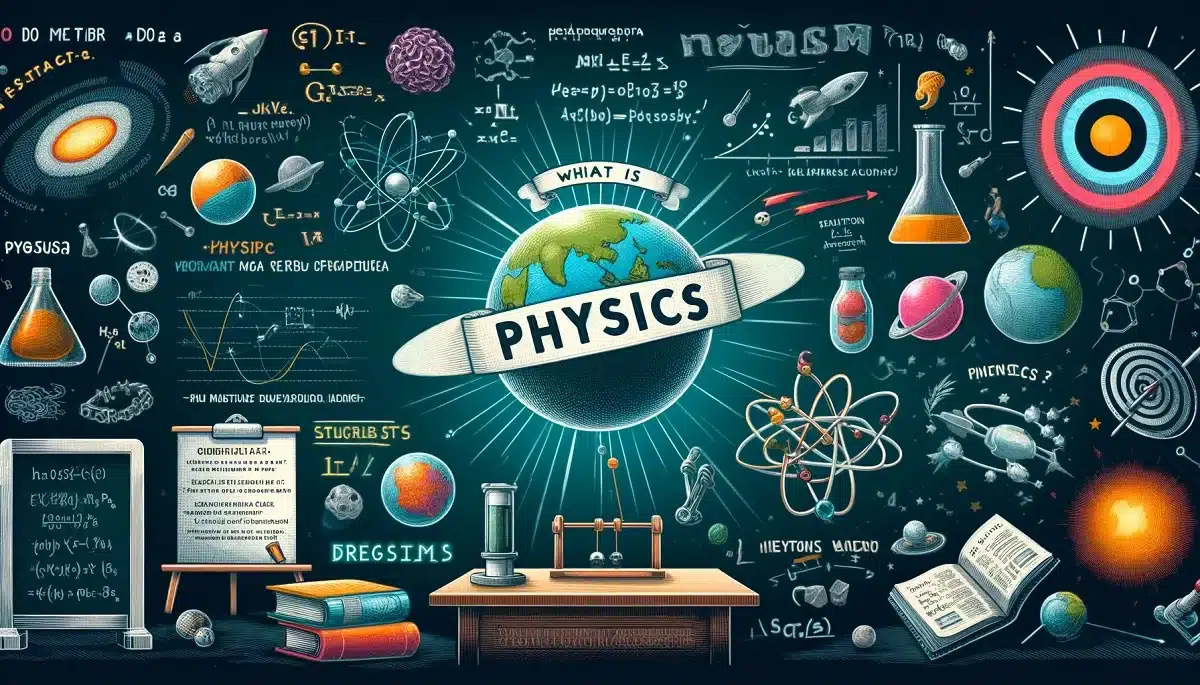In this detailed article, we will delve deep into the questions “What is Science? What is the Scientific Method?” You will discover the definition of science, its importance, and explore the stages of the scientific method.
Science is a systematic method of gathering knowledge that allows us to understand, explain, and predict our surrounding world. It is used to comprehend, elucidate, and forecast events related to nature and the universe. Science is founded on curiosity and skepticism and is supported by methods such as observation, experiment, measurement, and mathematical analysis.

What is Science?
Science is the effort to explain and predict natural phenomena; it is a methodical process that enables us to understand the universe. It encompasses a broad spectrum including natural sciences, social sciences, and formal sciences. Science is based on observations, experiments, and logical deductions and aims to test and verify knowledge in an objective manner.
The Definition and Importance of Science
Science is the process of systematically and organized acquiring knowledge about the universe’s structure and function. Fundamentally, it aims to discover, verify, and apply knowledge. Its importance lies not only in advancing technological progress but also in providing an informed foundation for decision-making processes in society. Science offers solutions that elevate our quality of life in health, environment, education, and many other fields.
Historical Development of Science
The roots of science are based on curiosity and observation and are as old as human history. Scientific thought, which began systematically in Ancient Greece, continued to develop in Europe throughout the Middle Ages and the Renaissance. The scientific revolution accelerated in the 16th and 17th centuries with the contributions of scientists such as Galileo, Newton and Kepler. With the Industrial Revolution, science has become an indispensable part of modern societies.
Basic Principles and Fields of Science
The basic principles of science are based on observation, hypothesizing, experimenting and evaluating the results. Science requires accuracy, consistency, generality, and objectivity. Their areas are distributed in a wide range:
- Natural Sciences: These are branches of science that study the natural laws of the universe, such as physics, chemistry and biology.
- Social Sciences: These are disciplines that examine human behavior, societies and cultures (such as sociology, psychology, economics).
- Formal Sciences: These are the fields that study abstract systems that are not directly observable, such as logic and mathematics.
Science constantly evolves within the framework of these principles and fields and renews itself with new discoveries and theories. This process is a reflection of humanity’s effort to understand the universe and live in harmony with it.
What is the Scientific Method?
The scientific method is the process of systematically obtaining and verifying information. This method is designed to ensure that scientific information is objective, reliable and valid. The scientific method includes the stages of asking questions, developing hypotheses, conducting experiments, collecting and analyzing data, interpreting the results, and publishing the findings.
Stages of the Scientific Method
- Asking Questions: The beginning of scientific research begins with the identification of a curious question or an event we observe.
- Research and Literature Review: Available information about the question is researched and examined.
- Hypothesis Formation: A prediction or assumption is made, which is a statement that will be tested later.
- Designing and Conducting Experiments: Experiments are designed and conducted to test the hypothesis.
- Data Collection and Analysis: Data obtained from the experiment is collected, analyzed and interpreted.
- Interpretation of Results: The data obtained is evaluated to determine whether the hypothesis is correct.
- Sharing Results: Research results are shared with the scientific community and the general public.
Hypothesis Formation and Experiment
A hypothesis is an articulated prediction about an observation or problem. A scientific hypothesis must be testable and falsifiable. Once the hypothesis is established, experiments are designed to confirm or disprove that hypothesis. An experiment is a systematic observation under controlled conditions and its purpose is to test the validity of the hypothesis.
Evaluation of Observations and Results
Observation is one of the cornerstones of the scientific method and involves the process of collecting direct or indirect data. Observations provide critical information about whether the hypothesis is supported or not. After the data is collected, it is analyzed and the results are interpreted. This process leads to confirmation or rejection of the hypothesis. Evaluation of results plays an important role in the advancement of scientific knowledge and often signals the beginning of new questions, hypotheses and research.
The Place and Importance of Science in Society
Science forms the basis of social progress and development. Societies develop healthier, more conscious and more sustainable lifestyles by using the knowledge and technologies offered by science. Science helps individuals find logical solutions to the problems they face and contributes to increasing social welfare. Additionally, science is an important tool in confronting global problems and making policy.
Social Effects of Scientific Developments
Scientific developments have transformed society in various areas such as health, education, communication and transportation. For example, medical research has led to better understanding and treatment of diseases. While scientific approaches in education have improved learning processes and methods, advances in communication and transportation technologies have allowed the world to become a more connected place. Scientific advances also stimulate economic growth and can support social equality.
Science, Technology and Innovation
Science and technology are intertwined fields; While science provides the basis for technological developments, technology advances scientific research. Innovation lies at the intersection of these two fields and leads to the development of new products, services and processes. Technological innovations make societies more efficient and sustainable, support economic growth and improve quality of life.
Science Education and Scientific Thought
Science education enables individuals to understand, evaluate and use scientific knowledge, which helps society make more informed decisions on science and technology issues. Scientific thinking improves critical thinking and problem-solving skills, allowing people to distinguish facts from speculation and make logical inferences. In addition to educating young generations as scientists of the future, science education ensures that all individuals are informed about scientific developments and understand the social impacts of these developments.






